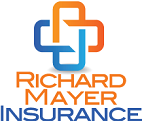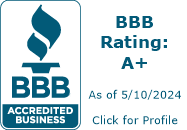Health Savings Accounts
Health Savings Accounts (HSAs) were passed into law in 2003 and became effective January 1, 2004. They were created with the intent to give you more control over your own healthcare decisions and lower your overall cost – without compromising quality and choice.
HSA is a tax-favored savings account designed to pay (or save for) allowable medical, prescription, dental and vision with tax-free dollars. Plus HSAs can provide an additional tax-deferred retirement account with the option of investment opportunities. As such, it is commonly referred to as a medical IRA (without many of the restrictions and penalties).
To qualify for an HSA, you must have a qualified High Deductible Health Plan (HDHP); major medical. HDHPs offer a more affordable approach to health insurance while maintaining the protection and security in the event of a catastrophic illness or injury. In short, you use tax-free funds from your HSA to cover allowable expenses until your deductible is met. Once your deductible is met, your insurance kicks in and pays according to your plan design.
The concept is simple: Lower your premiums; bank the money you save into a privately owned, interest bearing HSA; pay for medical, preventive and alternative healthcare with tax free dollars; and lower your taxable income while saving for your retirement. In essence, this strategy allows you to choose your healthcare, pay yourself and protect your assets by paying less to the insurance companies and the IRS.
HSA Benefits and Features:
- Lower Premiums versus copay plans.
- Pay Healthcare with tax-free dollars.
- Reduce your taxes.
- Build an additional retirement fund.
- You own your HSA with complete control.
- Simple to use – No claim forms – Keep your receipts.
- HSAs are portable and stay with you – not your employer.
- Anyone can contribute (deposit) into your HSA.
- All contributions are tax deductible up to certain limits.
- Use your HSA for current or future medical expenses.
- Tax exempt funds for preventive and alternative care.
- Money you don’t spend rolls over year after year.
- No ‘Use it or Lose’ requirements.
- Earn tax-deferred interest with investment options.
- 55 and older receive extra $1000 ‘catch-up’ contribution.
- At 65, withdraw for any reason without penalties.
- One time transfer from IRA into your HSA.
- Rollover funds from FSA and HRA into your HSA.
- Lower administrative costs for the employer.
TESTIMONAILS
“I have had the pleasure of working with Rich since 2008. He is a one of the top individual health insurance professionals in the Dallas/Ft. Worth area. Due to his experience & knowledge, I even selected him to participate on our Cigna Broker Advisory Council for Texas... If you are looking for a someone to help you navigate the complex world of individual insurance options to find the right solution, you have found the right guy.”— Chas Pierce, Sales Director Central Region, CIGNA








